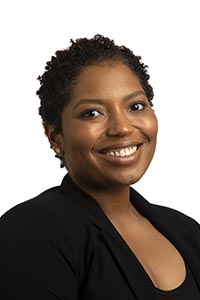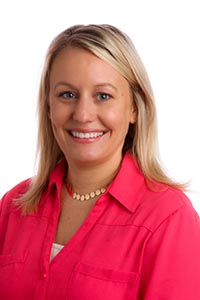HSC team receives national award for work addressing sexual and gender minority healthcare needs
More than 16 million people in the U.S. identify as sexual and gender minorities (SGM). The healthcare needs of these populations are different, especially in terms of reproductive health.
Visiting a health provider or accessing services has never been a one-size-fits-all experience. A lot depends on how included, respected and comfortable a patient feels.
The SGM community has often been overlooked when it comes to Maternal and Child Health (MCH) care, prompting a team from the HSC School of Public Health to want to make a difference in this area.


Through an Innovative Teaching Award from the Association of Teachers of Maternal and Child Health (ATMCH), HSC Assistant Professors Stacey Griner, PhD, MPH, and Erica C. Spears, PhD, MA, have developed MCH graduate course materials for Advancing Cultural Competence toward Sexual and Gender Minorities that are now available nationally as a resource to educators. HSC graduate Smriti Maskey (SPH ’20) assisted in the project.
HSC’s MPH concentration in Maternal and Child Health prepares professionals from a variety of backgrounds for leadership roles in organizations focused on promoting the health of women, children and families.
“We had MPH students in mind as we developed this lecture and activities,” Dr. Griner said.
“A lot of research has been conducted on cultural competence and its important role in delivering health services and programs, but many people — educators and providers included — are uncomfortable or unsure about ways of addressing sexual orientation, gender identity, and the reproductive and maternal and child health needs of the SGM community.”
Cultural competence has to do with relationships, communication and respect for the diverse lives and backgrounds of others. Studies have shown that tailoring healthcare and public health services through cultural competence can go a long way in reducing health disparities and improving patient outcomes.
“We’ve all heard of the golden rule,” Dr. Griner said. “Through cultural competence, the focus shifts to the ‘platinum rule’ of treating people how they want to be treated.”
Health disparities among African American, Hispanic and other marginalized populations have been exacerbated in 2020 by the effects of the COVID pandemic and widening cultural divides. For SGM members of these already-at-risk populations who identify as lesbian, gay, bisexual, transgender, non-binary, queer or questioning, the public health challenges are even greater.
“It’s marginalization inside marginalization; many of the health disparity experiences of race, culture, sexual orientation and gender identity intersect among these groups,” said Dr. Spears, a public health researcher dedicated to finding solutions for communities of color.
“There has been a lack of community acceptance because people don’t fit the boxes. People want to be respected and treated as their full selves, but that’s not widely happening yet. Even the registration forms for visiting a provider or accessing healthcare services can be discouraging if the pronoun choices don’t fit appropriately for the individual.”
In any population, there are different segments with different needs.
“In terms of the current social justice issues facing our world, there are many different hashtags,” Dr. Spears said. “For African Americans, that might mean Black Lives Matter, Black Trans Lives Matter, Black Women Matter and others, each a different community with its own stories, its own need to be recognized.”
“I would like to think we would have been doing this anyway in public health and healthcare, treating people as they wish and need to be treated, but we’re not there yet,” she said.
As a School of Public Health student involved in helping to develop and test the course lecture and materials, Maskey said she sees SGM cultural competence as especially important for professionals interacting with patients and community populations.
“Many people may be afraid to disclose their orientation for fear of bias or not receiving the services they need,” she said. “For students and future maternal and child health leaders, it’s critical to put cultural sensitivities into practice, to hopefully improve systems for the future and better meet people where they are in their own lives.”
The course lecture is already in use at HSC and can be downloaded by any educator through the ATMCH website.
“Cultural competency isn’t something new – it’s been important for a very long time,” Maskey said.
“We all want and need a meaningful experience with our provider and when navigating health-related services, to be met honestly and openly as who we are. That’s the heart of respect and communication in any setting, and especially in healthcare and public health.”





Social media